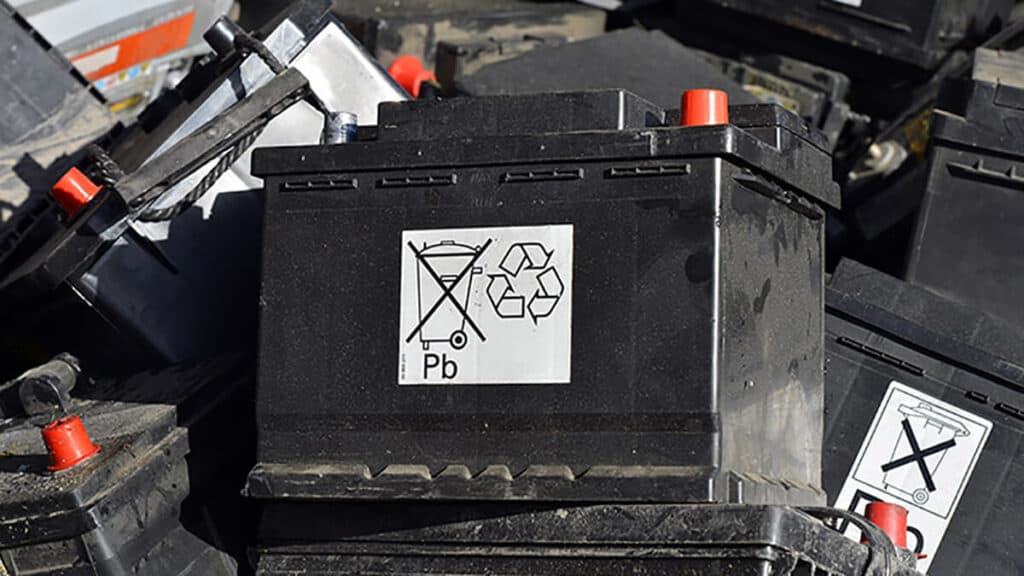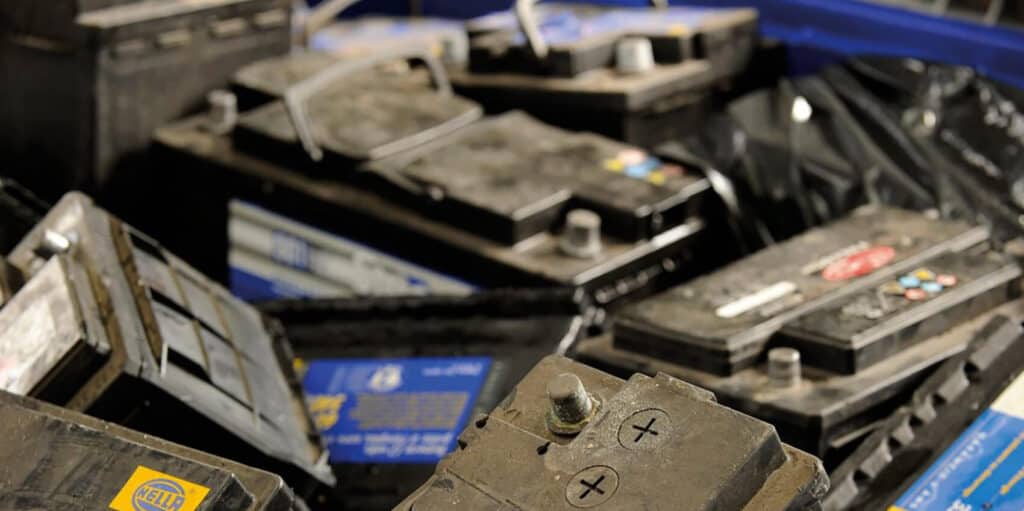Introduction: The Importance of Properly Disposing of Car Batteries
Picture this: a perfect drive through Ontario’s picturesque landscapes. Then, the thought hits you: how do I dispose of my old car battery responsibly? It’s a question that might not cross your mind until you’re faced with the inevitable—your car battery is dead, and you need a new one. Let’s delve into why this task matters, not just for your car’s health but also for the environment.
Understanding Ontario’s Regulations for Battery Disposal
The topic of recycling car batteries often prompts the question, “What are the rules for recycling car batteries in Ontario?” The answer lies in a mouthful of a document—the Resource Recovery and Circular Economy Act. This act governs the way hazardous materials, including car batteries, should be disposed of in Ontario. Don’t assume you can plead ignorance if you’re caught disposing of a battery improperly; the law is explicitly clear that improper disposal of hazardous waste like car batteries is a serious offense. Fines can rack up quicker than you think, and you’ll find yourself regretting not having taken the time to understand the rules.
But it’s not just about following the law; it’s about understanding why these regulations exist in the first place. The legal framework is designed not just to slap fines on those who don’t comply, but to protect the environment and public health. Car batteries contain toxic chemicals that can contaminate soil and waterways, posing severe risks to both human health and local ecosystems. This is why Ontario takes a hard line on incorrect disposal methods. So, beyond just sparing yourself a hefty fine, adhering to the act’s regulations is a way to do your part in preserving the environment for future generations.

Retailer Programs: Can You Return Your Old Battery to Stores Like Canadian Tire?
Retailer programs in Ontario often allow you to return old car batteries for proper recycling. Stores like Canadian Tire may even offer you a discount on your next purchase for being environmentally responsible.
• Battery Return Programs: Most major automotive retailers in Ontario offer battery return programs. You can simply take your old car battery back to the store where you originally purchased it or any other participating retailer for safe disposal.
• Discounts and Incentives: Some stores offer financial incentives to encourage responsible recycling.
• Documentation Required: To successfully return your old battery, you may need to show some form of documentation like the original purchase receipt or warranty information. It’s a good idea to call ahead and confirm what you’ll need.
• Environmental Impact: These programs are not just for customer satisfaction; they are part of a broader corporate social responsibility strategy. They help reduce the improper disposal of hazardous waste, thus helping the environment.
• Transport Tips: When taking the old battery to the store, it’s advisable to keep it upright to prevent leakage and wrap it in a thick plastic bag. This can prevent any accidental spillage of harmful battery acid during transportation.
• Quick and Convenient: Retailer programs offer one of the most straightforward ways to dispose of old batteries responsibly, so take advantage of them. They’re quick, convenient, and let you tick off one more item from your to-do list, all while saving the environment.
By participating in retailer programs, you’re not just adhering to Ontario’s regulations; you’re actively contributing to a more sustainable future. Isn’t that worth the extra effort?
Recycling vs. Reusing: What Happens to Your Old Car Batteries?
Surprisingly, about 98% of a car battery can be recycled! The metal, acid, and plastic components can be broken down and given a second life in new products. This high level of recyclability offers a glimmer of hope for a greener future. However, the question of reusing is a bit more nuanced. Reusing an old car battery isn’t as simple as slapping it into a new vehicle. Unless you possess the technical expertise to refurbish a battery—which is no small feat—recycling is your safest and most responsible option.
Both understanding the laws and appreciating the capacity for recycling can empower you to make the best decision for your old car battery. This dual knowledge not only keeps you on the right side of the law but also allows you to contribute positively to a circular economy.
Electric Car Batteries: A Special Case for Disposal
When it comes to electric car batteries, you’re essentially handling a different beast. Unlike traditional lead-acid batteries, electric cars usually employ lithium-ion or other specialized types of batteries. Don’t even think about tossing them in your curbside recycling bin. These types of batteries are filled with materials that require special handling to ensure they don’t contaminate the environment or pose safety risks. Many specialized recycling facilities are equipped to handle the complex recycling process, from breaking down the components to neutralizing the acidic contents. Some might even repurpose them into energy storage systems, giving your old battery a second life. So, before you rush to get rid of your electric car battery, contact your local recycling facility to find out the appropriate disposal method.
DIY Recycling: What You Should and Shouldn’t Do
Assess Your Expertise: Can you recycle car batteries yourself? The first thing to consider is your level of expertise. DIY recycling of car batteries is not advised for the average person. It requires specialized knowledge in hazardous waste management.
• Safety Hazards: Car batteries contain toxic substances such as lead, sulfuric acid, and in the case of electric vehicles, lithium. Mishandling can result in harmful chemical leaks or even explosions.
• Legal Considerations: Before embarking on any DIY recycling, make sure you’re aware of Ontario’s regulations regarding hazardous waste disposal. Failure to adhere to these could result in hefty fines.

• Proper Tools and Gear: If you are indeed qualified, ensure you have the appropriate safety gear, including gloves, goggles, and a well-ventilated workspace.
• Disassembly Risks: Taking apart a car battery is a sensitive operation that can easily go wrong, leading to hazardous spills or harmful fumes. Even experienced individuals should exercise extreme caution.
• Responsible Disposal: If you realize DIY isn’t the way to go, opt for specialized recycling programs or retailer take-back services to ensure your car battery is disposed of responsibly.
• Consult with Professionals: When in doubt, always seek advice from professionals or local recycling centers specialized in hazardous waste. They can provide guidelines on what can and cannot be done in a DIY setting.
While the idea of DIY recycling sounds appealing, it’s not advised unless you’re an expert in hazardous waste management. Remember, mishandling car batteries can be dangerous. It’s not just about following rules; it’s about ensuring you don’t inadvertently cause harm to yourself or the environment.
Common Misconceptions: What Not to Do With Old Car Batteries
If you think tossing that old car battery into your trash bin sounds like an easy way out, hold that thought. One of the most pervasive misconceptions is the idea that car batteries, whether traditional or electric, can be disposed of like everyday household waste. Let’s set the record straight: it’s not just a bad practice, it’s illegal in Ontario. Throwing car batteries in the trash could lead to hazardous materials seeping into the ground, contaminating soil and water supplies. The heavy metals inside can be toxic to both animals and humans. And if you’re caught doing this, you can be hit with significant fines under Ontario’s environmental regulations. So, the next time you’re contemplating taking shortcuts in battery disposal, remember that the cost—both financial and environmental—could be steep.
By now, you should be well-armed with the knowledge you need to dispose of any car battery responsibly. Whether it’s a traditional lead-acid battery or a more complex electric car battery, understanding proper disposal practices not only keeps you in line with the law but also helps preserve the environment for future generations.
Conclusion: The Environmental Impact and Future Trends in Battery Disposal
At the end of the day, proper disposal is not just about following the law; it’s about taking care of the planet we call home. As battery technology evolves, so will the methods for recycling and reusing them, but the goal remains the same: to minimize harm to the environment.
Looking for an eco-conscious mobile mechanic service in Ontario? Uchanics can help you maintain your car and guide you through responsible disposal methods for old car batteries. Book an appointment today to be part of the solution, not the pollution.
